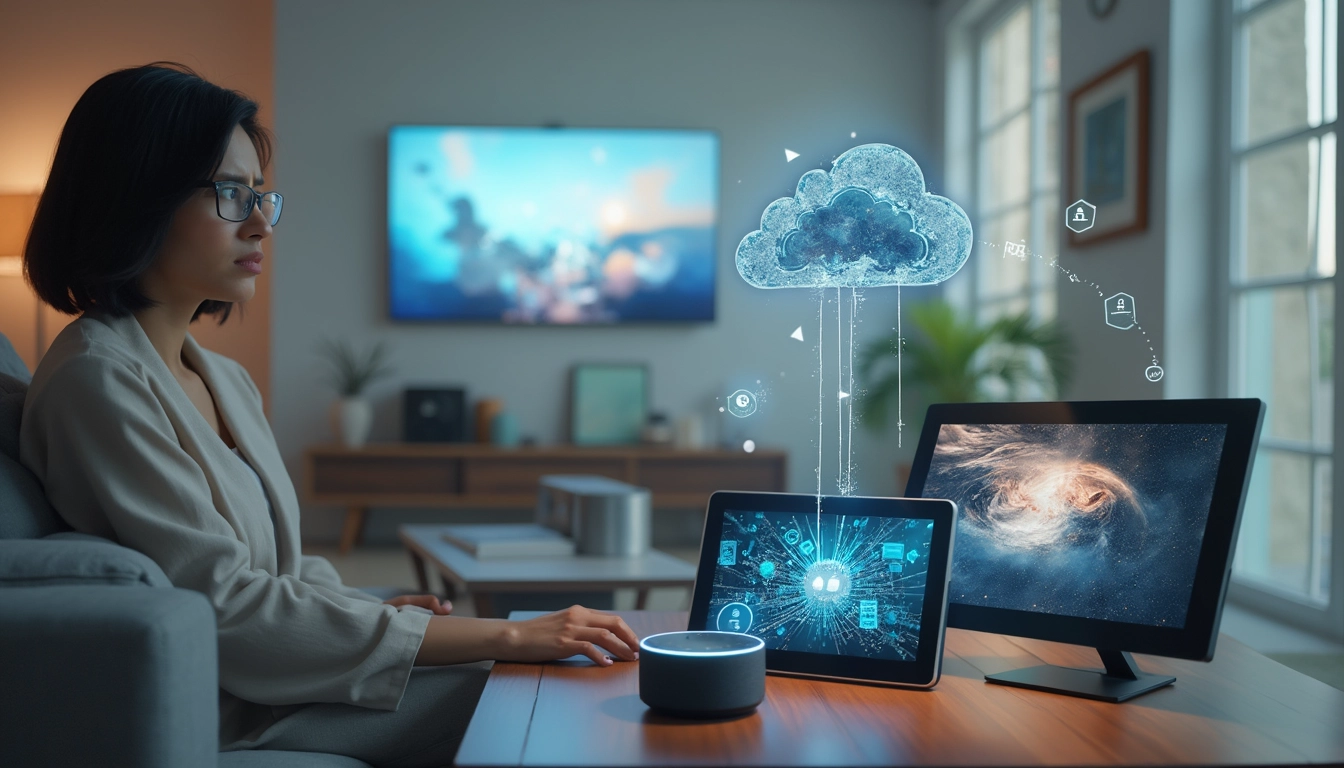
Amazon Echo Devices Shift to Cloud Processing for Alexa Plus Updates
Amazon’s latest update marks a significant shift in its smart speaker ecosystem as the tech giant plans to remove local processing capabilities from select Echo devices starting March 28, 2025. This change, driven by the implementation of Alexa+ and its generative AI features, requires enhanced cloud processing power, fundamentally altering how user voice interactions are handled.
Table of Contents
Key Takeaways:
- Local processing removal affects Echo Dot (4th Gen), Echo Show 10, and Echo Show 15 devices
- All voice commands will now require cloud processing to support Alexa+ features
- Privacy implications include mandatory cloud processing of voice recordings
- Enhanced generative AI capabilities through Alexa+ drive this technical shift
- Users seeking privacy must choose between functionality and data protection
The Shift to Cloud-Only Processing
The transition away from local processing represents a substantial change in how Amazon’s Echo devices handle voice commands. This modification affects several popular models, including the Echo Dot and other smart speakers. The primary driver behind this change is the integration of Alexa+, Amazon’s advanced generative AI system that demands increased processing power.
Privacy Implications and Data Handling
With the removal of local processing, all voice interactions will be transmitted to Amazon’s cloud infrastructure for processing. While Amazon ensures encryption during transmission, the data must be decrypted for analysis in the cloud. This shift raises important considerations about data privacy and security in smart home devices, similar to concerns seen with other smart home innovations.

Impact on User Experience and Features
The transition to cloud-only processing affects several key features, particularly Voice ID and personalized responses. However, the enhanced capabilities of Alexa+ promise to deliver more sophisticated interactions and improved functionality. Users interested in advanced home automation might want to explore automation solutions like Latenode to complement their smart home setup.
Alternative Options and User Choices
Users concerned about privacy have limited options: they can either embrace the new cloud-based system or disconnect their devices, losing most functionality. Some might consider exploring alternative smart home technologies that prioritize local processing. The decision ultimately depends on individual preferences regarding the balance between privacy and advanced features.
Future Implications for Smart Home Technology
This shift by Amazon reflects a broader industry trend toward cloud-based AI processing. The move suggests that future smart home devices may increasingly rely on cloud computing to deliver advanced features. While this enables more sophisticated functionality, it also establishes a new standard for how personal data is handled in smart home ecosystems.


